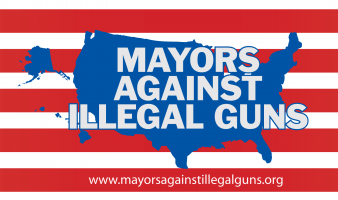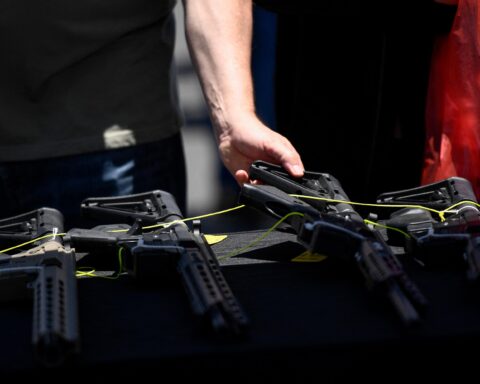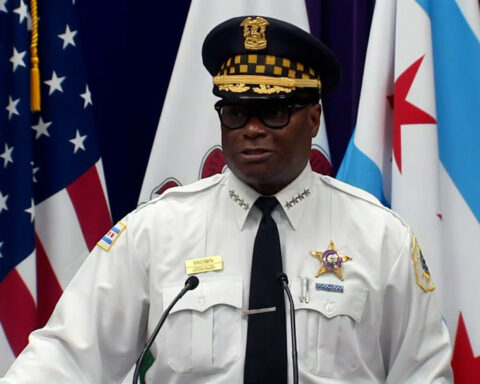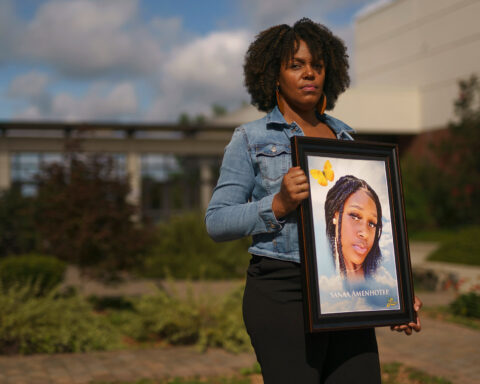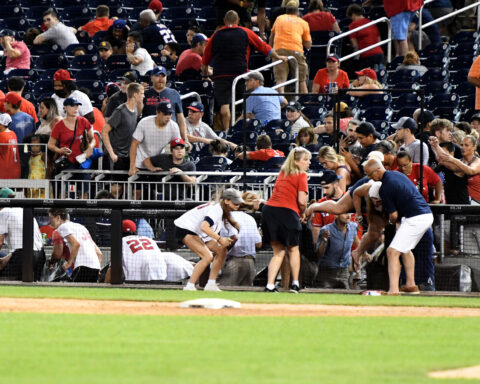You’ve probably seen the headlines: 2020 was a deadly year for gun violence in cities across America.
In January, the four of us —- along with hundreds of other mayors —- joined together virtually for the US Conference of Mayors winter meeting to discuss this tragic development, support each other and figure out ways to tackle our gun violence crisis. What we heard from our colleagues was deeply unsettling. Many cities are facing not one, but two public health crises at the same time: Covid-19 and increased gun violence.
As cities battled the deadly pandemic in 2020, a survey of over 125 diverse police agencies found that 57% of them saw upticks in firearm homicides and nearly 70% saw upticks in nonfatal shootings. Available data also suggests that violence increased in large cities in 2020, regardless of local politics or governing political parties. And after a full year of this violence, it’s clear that these increases won’t disappear without action. Indeed, they could linger long after the last American receives a coronavirus vaccine.
Thankfully, there’s hope that local officials like us will no longer have to grapple with these unprecedented challenges without federal assistance.
As we welcome the Biden administration, we’re also sounding the alarm bells. Our country can’t continue to overlook the record-breaking number of shootings in our cities. We can’t continue to underfund evidence-based intervention programs, like local outreach programs which employ credible messengers to go out into communities to de-escalate violence, and hospital-based violence intervention programs, that connect gunshot victims with counselors to prevent retaliation.
Both are critical tools for cities to prevent gun violence, especially as sales of guns and ammunition soar to record levels. We can’t continue to allow illegal guns to stream into our communities. And we can’t continue to turn a blind eye to the Black and Latino communities in cities that are bearing the brunt of this daily gun violence.
Our offices have been working nonstop to try to meet this crisis with action, directing the resources we can to proven, locally tailored, community-led violence interventions. In the hardest hit neighborhoods, communities are doing all they can, too, showing perseverance and creativity while bearing the disproportionate impact of a pandemic and economic crisis. But the truth is that neither city governments nor the communities we serve can solve this problem alone.
Reducing the harm of the pandemic must also include saving lives from gun violence, and the federal government must work hand in hand with mayors to get it done. Fortunately, there are several ways the new administration can help.
To begin, the administration should create a gun violence prevention task force to coordinate efforts across every corner of the administration and every city in the country. We need to re-imagine and invigorate the federal response to gun violence — and that will take an all-hands approach.
From there, Biden can sign a series of executive orders to begin the real work of addressing gun violence in our cities. That means immediately prioritizing the existing public safety grant programs that support our community-based violence intervention organizations whose life-saving work has been underfunded during the pandemic.
It means stopping the flow of illegal guns into our communities by reforming how guns are sold, publishing data on the sources of guns used in crimes and strengthening the background check system.
It means helping provide access to modern technology that will assist in solving gun crimes and providing information about where illegal guns are coming from.
And it means getting ahead of one of the fastest growing gun safety issues by eliminating the market for one of the new guns of choice for criminals: ghost guns — untraceable, do-it-yourself weapons that can be sold without a background check, no questions asked.
To be clear, what we’re asking for is nothing like the last administration’s moves to deploy federal agents to cities, which was done under the guise of fighting the surge in crime but seemed to be more a stunt to stir political and racial hostilities. What we need is collaboration to address the root causes of violence that have existed for years —- like housing and income inequalities —- and to forward the movement for racial equity by helping the communities who bear the brunt of these tragedies.
We also need a federal response that prioritizes funding agencies like the Bureau of Alcohol, Tobacco, Firearms and Explosives that can shut down gun trafficking channels and bad actors in the gun industry who supply illegal guns.
Above all else, we need a partnership between our cities and the federal government to help support the local initiatives that we know are working.
The bottom line is that these two simultaneous crises —- Covid-19 and gun violence —- have formed a perfect storm in our cities, stretching us to unacceptable limits and leaving far too many people dead or harmed in their wake. Our cities are being tested like no other time in our lifetimes, and frankly, their future and the lives of our constituents depend on what lawmakers at every level of government do next.
We’re doing everything we can to address these colliding crises, but we just can’t go it alone. We urgently need congressional action on gun safety, but executive actions — like the ones we outlined — would be a crucial step in the right direction. We look forward to working together — with Democrats, Republicans and independents — to keep our cities safe from gun violence.

